Wang Yuming, director of the rheumatism unit at Beijing Hospital of TCM, confirmed there is interest in the method, but added that she has received patients who have tried it and seen no results.
She described the treatment as a folk therapy whose effect is often exaggerated.
"Maybe it works for some, but rheumatoid conditions can't be treated with this therapy alone," she said, adding that her hospital does not offer bee acupuncture.
"There are more than 100 illnesses under the category of rheumatism. It needs further study to determine which diseases suit the therapy," she said.
Wang's clinic also offers bee products such as queen cells and proplis. Wang said they are helpful for patients suffering from cancer because they contain ingredients that help "get rid of tumors".
But Chen Wanqing, deputy director of the Chinese Academy of Medical Sciences' National Central Cancer Registry, said that as far as he is aware there is no conclusive evidence that these bee products are effective in treating tumors.
The American Cancer Society also states on its website: "Although the anti-tumor properties of some ingredients in bee products have been studied in the laboratory, there have been no clinical studies in humans showing that bee venom or other honeybee products are effective in preventing or treating cancer."
The National Development and Reform Commission, the country's top economic policymaker, included bee acupuncture on its list of approved medical services in 2007.
But none of Beijing's 30-plus public TCM hospitals offer the therapy, said Tu Zhitao, deputy director of the city TCM management bureau.
"It's for the hospital to decide whether to provide certain medical services," he said.
Tu also said that Wang Menglin does not have a valid license to practice medicine.
The clinic owner confirmed this, saying his license expired in 1998, but added that the other three doctors in the clinic, who all have licenses, carry out most of the treatments.


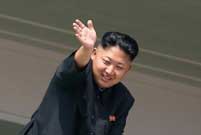 DPRK holds military parade to mark 65th founding anniv.
DPRK holds military parade to mark 65th founding anniv. Highlights of MAKS 2013 Int'l Aviation and Space Show
Highlights of MAKS 2013 Int'l Aviation and Space Show  10th China-ASEAN Expo opens in Nanning
10th China-ASEAN Expo opens in Nanning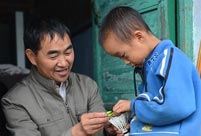 Photo story: A primary school of only two people
Photo story: A primary school of only two people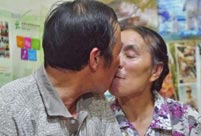 An elderly Chinese street cleaner's love story
An elderly Chinese street cleaner's love story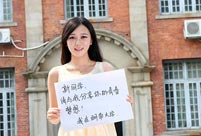 'College campus queens' welcome the new students
'College campus queens' welcome the new students 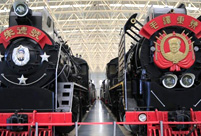 'Travel everywhere in Beijing': China Railway Museum
'Travel everywhere in Beijing': China Railway Museum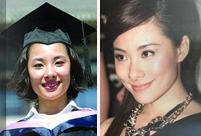 Chinese sports stars' school photos
Chinese sports stars' school photos  Players shining at the 12th National Games of China
Players shining at the 12th National Games of China Residences of the royal house of Savoy
Residences of the royal house of Savoy China's frigate 'Bengbu'in fire training
China's frigate 'Bengbu'in fire training The last days of Wan Aihua
The last days of Wan Aihua Highlights at 12th National Games of China
Highlights at 12th National Games of China Beijing Film Academy welcomes freshmen
Beijing Film Academy welcomes freshmen 2013 Taiwan Int'l Tourism Expo kicks off in Taipei
2013 Taiwan Int'l Tourism Expo kicks off in TaipeiDay|Week|Month